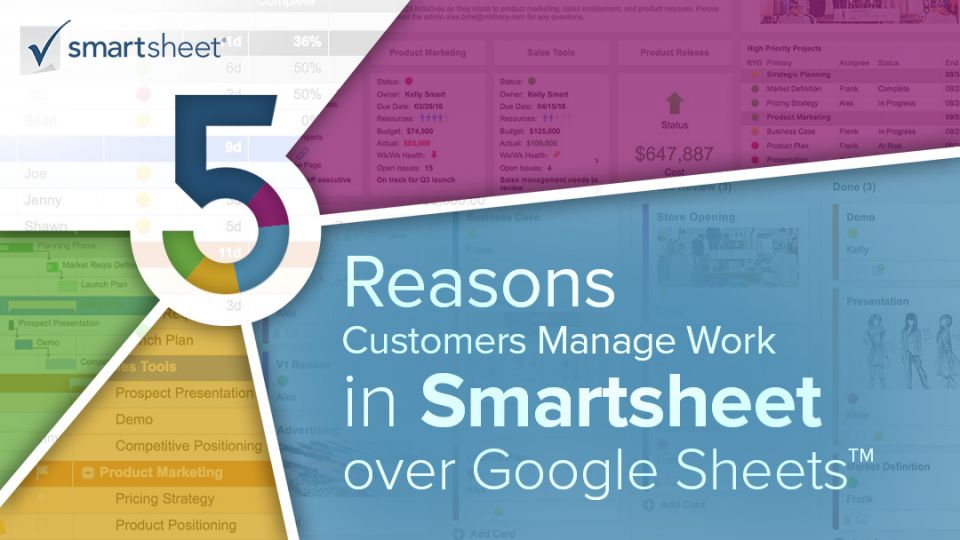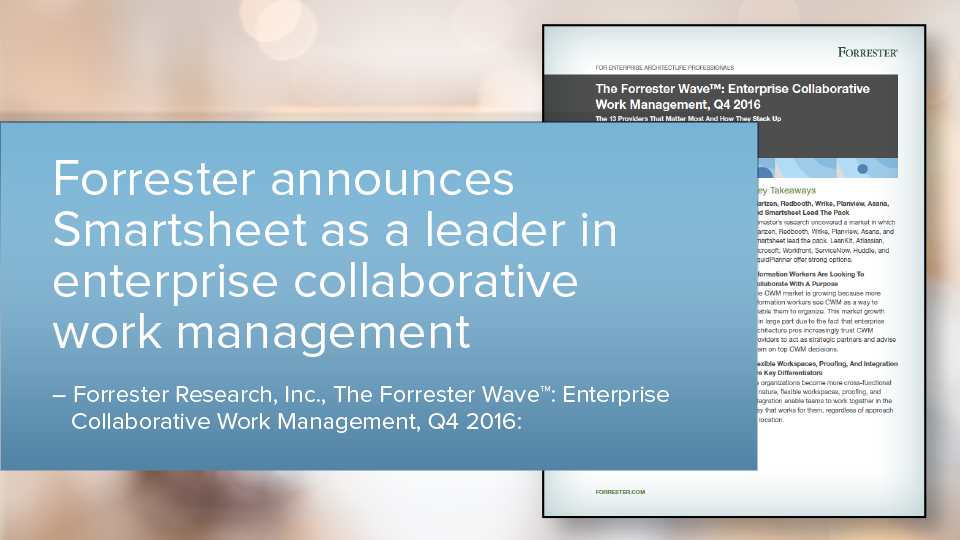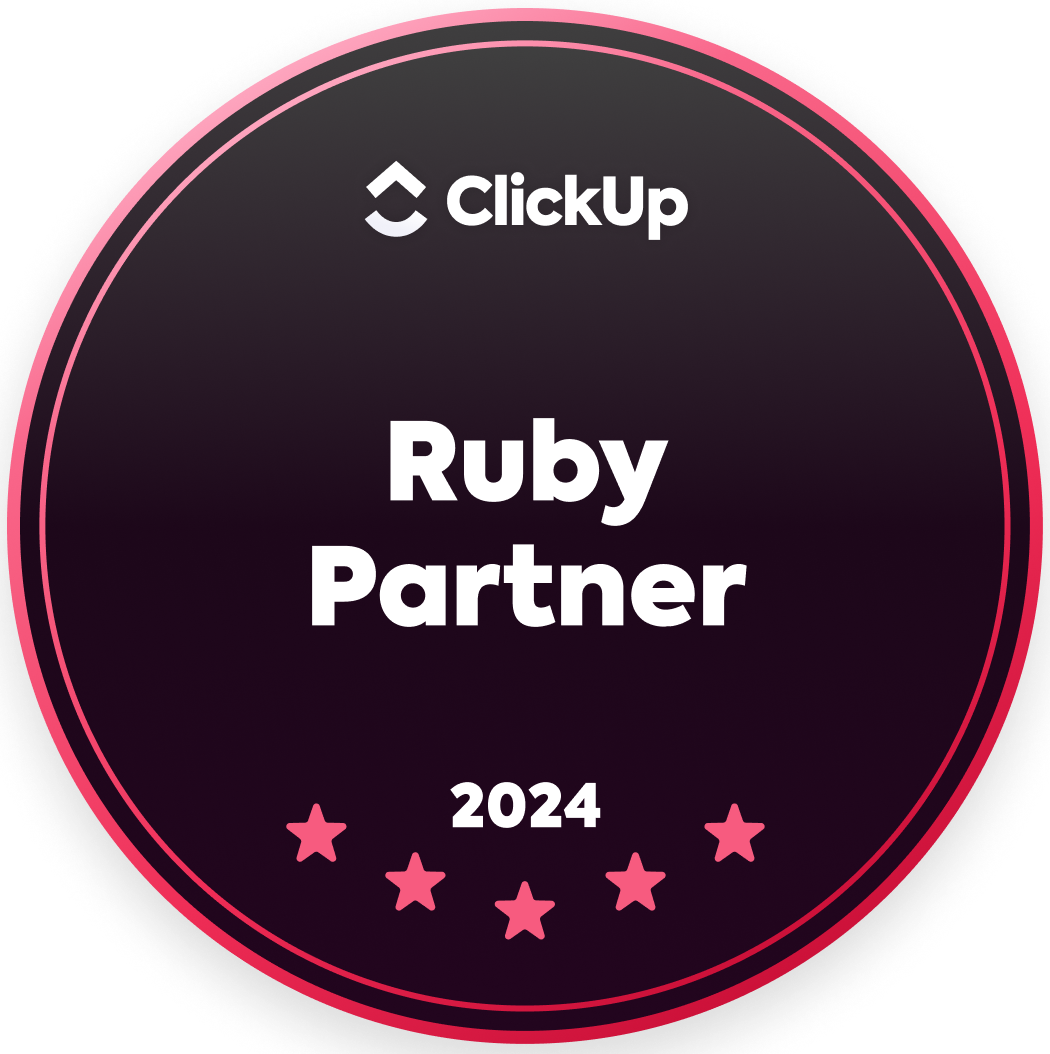|
Steve Brown on October 20, 2016
Talking with customers, I’m constantly amazed by how they use Smartsheet. They use us to launch rockets, open retail stores, build skyscrapers, plan world-class events, improve processes, and everything in-between. Recently, a friend asked me why people shouldn’t just use Google Sheets instead of Smartsheet? Fair question despite the fact that he draws his paycheck from Google. After sharing with him that Google itself is a large Smartsheet customer, I offered the following five reasons customers manage work in Smartsheet over Google Sheets. First, a confession....I like Google Apps. I use them often in my current job. This is being written in a Google Doc. If you're looking for someone to hate on Google, I'll disappoint. Katy Beloof on August 15, 2017
In today’s digital workplace, employees must work together more efficiently to get more done. Customer-obsessed firms take an outside-in approach, relying on collaboration to win, serve, and retain customers. Yet with all of the enterprise collaboration tools at hand, teams still rely heavily on email. Despite the rapid adoption of collaboration tools, email use in many companies has increased. Forrester estimates that due to the interruption-driven nature of email activities, the amount of time spent on an actual task activity is reduced to 18%. This means that in a 40 hour work week, less than one day is spent on actual work. Information workers are seeking a way to organize their work, and companies are turning to enterprise collaboration apps to help employees better manage work. Mark Mader on October 18, 2016
Even if you aren’t a baseball aficionado, the movie Moneyballdelivers valuable business insights on how to gain a competitive edge. Focus on the problem. Think differently. And remember, not everything worth doing is going to be easy. Yet, of all the lessons in Moneyball, the one that really resonates with me is this: “Change the game.” Observe something in the world that could be better, then do something about it. From the early days of Smartsheet, we saw something in the world that could be made better: remove the drag on innovation and the completion of work by doing away with spreadsheets as the primary way to track and manage work. To change the game, we knew the market had to quickly move from legacy work management tools to next generation technologies that support the competitive advantage and innovation that individuals, teams and business leaders seek. |
|
Care line: +603-9212 0157
|
Leave us your inquiry |
|
This company is registered with the Ministry of Finance, Malaysia.
Equip your organisation with digital solutions & training that inspire innovation and joy at work. Copyright © 2024 57Network Consultancy Sdn. Bhd. Company Registration number : 202001020346 (1376666-K) All rights reserved. |








